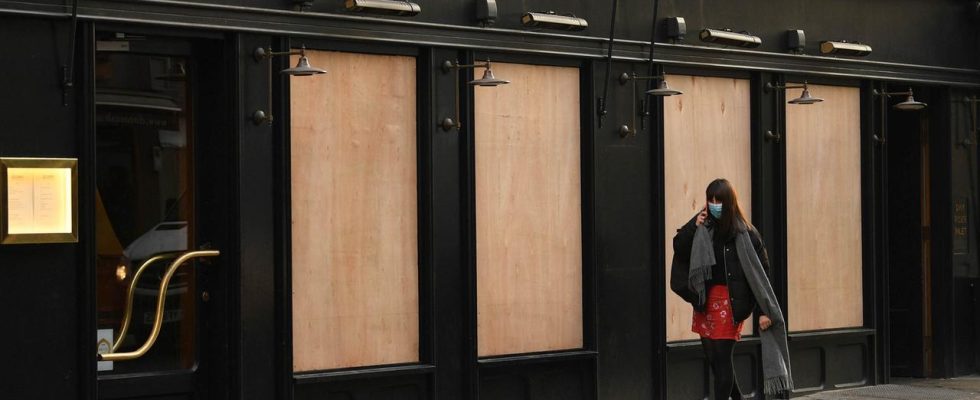Horrible prices, too few staff and customers who can no longer afford to eat out: British gastronomy has not recovered after Corona. Restaurants have to close en masse.
Tony Rodd calls the decision “heartbreaking.” The London chef had to close his restaurant at the beginning of January. For five years he ran the Copper and Ink in Blackheath, south-east London, with his wife Becky. Things had become more difficult since the pandemic, he says. But Tony and Becky fought.
It was only shortly before New Year’s Eve that they had to admit that things would no longer continue: “We looked at the numbers from December and then the bookings we had for January,” says Tony Rodd. “And nothing fit together. We knew then that we no longer had a choice.”
Hundreds of restaurant owners in the UK feel the same way as Tony and Becky. The beginning of the year is generally a difficult month for the industry: there are fewer customers, rent advance payments are due, and there is also a hefty VAT payment after the Christmas season.
“People just didn’t have the money.”
This year, however, things are particularly bad, says Kate Nicholls from the UK Hospitality industry association: “We haven’t seen anything like this since the financial crash of 2010.” It’s all coming together: high energy prices, increased food costs due to high inflation and government-imposed wage increases. Even if restaurants are busy, they cannot cover the running costs.
And they are often not well attended. The cost of living crisis in Great Britain not only affects restaurant owners, but also customers. Tony Rodd has tracked dwindling reservations and footfall at his restaurant for months. When asked, he kept hearing the same answer: Eating out was too expensive. “It wasn’t about the quality of the food or the service. People just didn’t have the money,” he says.
Ten restaurants close every day
Since the pandemic, the UK hospitality sector has not recovered. According to an analysis by the management consulting firm AlixPartners, an average of more than ten restaurants, bars and pubs closed per day in the year to September 2023. The number of all catering establishments in the UK has fallen below 100,000 for the first time.
Small, independent businesses that have fewer cash reserves are particularly affected, says Paul Wilson of the Federation for Small Businesses: “Many of our members had to take out loans to get through the pandemic. So they’re still paying those off, on top of all that other economic concerns.” This was different in other Western countries, where companies received grants rather than loans. In addition, small companies are more affected if, for example, a chef quits. In a small kitchen, that’s a large part of the team that has to be replaced.
Call out Tax relief
The industry associations are calling on the government to take immediate action, especially when it comes to taxes. UK Hospitality demands that the property tax for commercially used properties should be capped – not just for the smallest companies, as is currently the case. It is also problematic how high the VAT is in Great Britain: 20 percent, higher than in any other country in Europe with the exception of Denmark. According to Kate Nicholls, a reduction here would provide an immediate boost to the industry.
Tony Rodd doesn’t think anything will improve under the current Conservative government. The politicians would have had enough opportunities, for example, to regulate price increases by energy companies. In his restaurant, the energy bills rose from almost 30,000 euros to almost 100,000 euros. “We’ve been screaming and shouting for a year and a half,” says Tony Rodd. “But they turn their backs on us.” He and his wife Becky are now looking for a new job.
Valerie Krall, ARD London, tagesschau, February 1st, 2024 10:58 a.m

